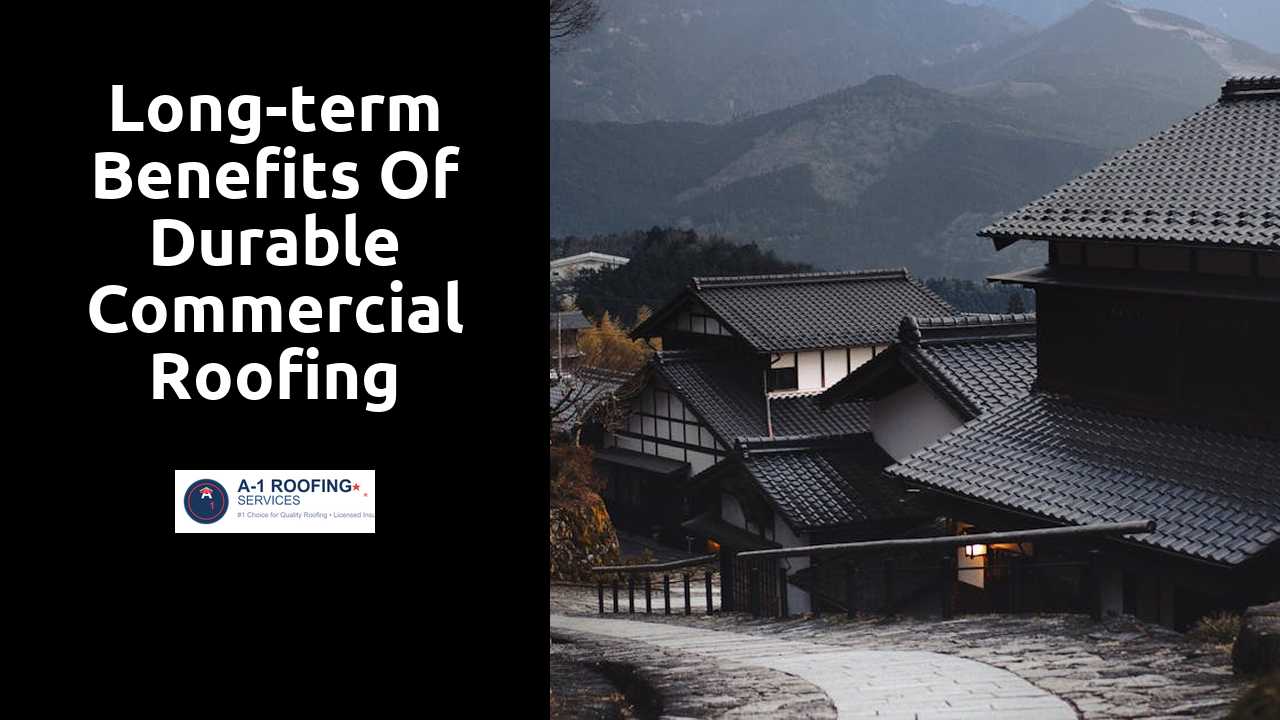
Long-term Benefits of Durable Commercial Roofing Solutions
Table Of Contents
Minimal Repair Needs
Durable commercial roofing solutions significantly reduce the frequency and cost of repairs over time. Traditional roofing materials often succumb to wear and tear, leading to leaks, mold growth, and other issues that demand immediate attention. In contrast, high-quality roofs designed for longevity withstand extreme weather conditions and resist damage from environmental factors, which minimizes the likelihood of unexpected repairs.
Additionally, a roof that requires less maintenance allows business owners to focus their time and resources on core operations rather than constant upkeep. The reduced need for repairs not only saves money but also enhances the overall reliability of a building. Building owners enjoy peace of mind, knowing that their investment is protected, which can lead to increased property value and satisfaction with the roofing system in place.
Hop over here to discover more.
Benefits of Low Maintenance Requirements
Long-lasting commercial roofing systems significantly reduce maintenance needs over time. Traditional roofing materials often require frequent inspections and repairs due to weather degradation or material fatigue. In contrast, durable roofs, constructed from advanced materials, can withstand harsh environmental conditions while maintaining their integrity. This reliability translates to fewer service calls and diminished labor costs, allowing property owners to allocate resources to other critical areas of their business.
The low maintenance requirements of durable roofing not only ease the burden on facility management but also promote overall operational efficiency. Without the constant need for repair, businesses can avoid disruptions caused by maintenance work. This stability fosters a consistent work environment for employees and clients alike, enhancing productivity and satisfaction. In addition, the longevity of these roofs ensures that aesthetic standards remain high, contributing to the value and appeal of commercial properties.
Improved Safety Standards
Durable commercial roofing solutions play a significant role in enhancing safety standards for any building. When roofs are constructed with high-quality materials, they are less prone to leaks and structural failures that can lead to hazardous situations. Such reliability not only protects the occupants from potential injuries but also minimizes the risk of extensive damage to the property.
In addition to preventing issues caused by severe weather and age, robust roofing materials can help to ensure the structural integrity of a building over time. These roofs are designed to withstand heavy loads, resist fire, and endure extreme temperatures. As a result, businesses can operate with peace of mind, knowing their roofs contribute to overall safety and stability.
How Durable Roofs Contribute to Structural Integrity
The reliability of a durable roofing system is critical for maintaining the overall structural integrity of a building. Quality materials resist various weather conditions and external stresses. They prevent water infiltration that can lead to deterioration of structural components over time. This long-lasting protection ensures that the roof serves its purpose without compromising safety or functionality.
Beyond just holding up against the elements, a strong roof supports the entire framework of a commercial building. Its durability minimizes the risk of structural failures, which can be costly and hazardous. Additionally, a well-constructed roof disperses weight appropriately, contributing to the longevity and resilience of walls and foundations. Investing in such solutions is essential for enhancing the safety of occupants and protecting property assets.
Environmental Sustainability
Choosing durable roofing solutions contributes significantly to environmental sustainability. Long-lasting roofs reduce the frequency of replacements, thereby minimizing waste generated from old roofing materials. This aspect becomes increasingly important as landfills reach capacity and the need for responsible waste management grows. Manufacturing durable roofing materials often involves sustainable practices, such as using recycled materials, that further decrease the environmental footprint.
The eco-friendly aspect of these roofing solutions extends beyond their lifespan. Many durable roofing options reflect sunlight rather than absorb it, leading to reduced energy consumption in cooling buildings. Lower energy usage not only decreases operational costs but also reduces greenhouse gas emissions. Furthermore, selecting materials that promote energy efficiency plays a crucial role in creating a more sustainable built environment. This proactive approach aligns with broader initiatives aimed at combating climate change and preserving natural resources.
The Eco-Friendly Aspect of Long-Lasting Roofing
The longevity of durable roofing solutions significantly contributes to environmental sustainability. When roofs are designed to last longer, they reduce the frequency of replacements, ultimately decreasing waste. Traditional roofing materials often end up in landfills, creating a burden on the environment. By investing in durable options, businesses can minimize their ecological footprint.
Additionally, many long-lasting roofing materials are designed using environmentally friendly processes. These materials often incorporate recycled content or can themselves be recycled at the end of their lifespan. By choosing sustainable roofing options, companies not only benefit from reduced maintenance costs but also support a healthier planet. This investment aligns with growing consumer expectations for environmentally responsible practices.
Related Links
Enhancing Property Value with Quality Commercial RoofingThe Link Between Commercial Roofing and Business Aesthetics